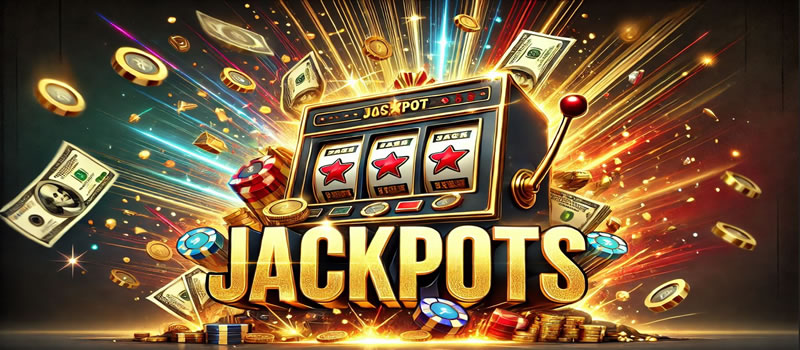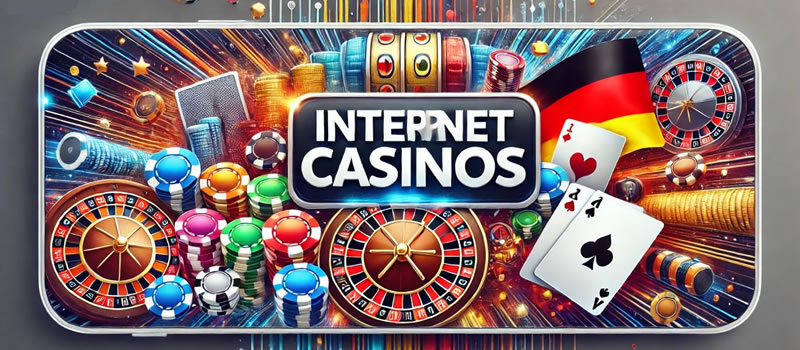The allure of the jackpot is so strong that individuals across different backgrounds find themselves captivated by it. It presents a nearly irresistible pull comes from the chance of winning a large sum of money through casino games, participating in lotteries, or playing games of chance. For millions of people around the world, the dream of achieving sudden wealth and financially independent in an instant holds great appeal. Several psychological factors contribute to the jackpot's allure.
Key Takeaways
- The allure of the jackpot: The thrill of winning big draws people in because of the potential for transformative gains.Dopamine and the jackpot effect: Our brain's reaction to potential rewards, such as winning a jackpot, is fueled by the release of dopamine, creating a sense of pleasure and drive.The role of risk and reward: The attraction to jackpots stems from the combination of risk and potential reward, activating the brain's reward system.Optimism and hope in jackpot pursuits: The chance of a big win impacts our mindset, fostering feelings of hope and optimism for the future.Social and cultural influences: Our attraction to jackpots is shaped by social norms, cultural norms, and social influences.
The ability to indulge in luxuries without financial concerns and the possibility of becoming financially free are the main draws for many. The attraction of potentially being able to afford anything, such as designer clothes or far-flung travel, motivates people to strive for big successes. In addition, a major part of the jackpot's appeal stems from its unexpected nature & uncertainty. The rush can’t easily be replicated the excitement that is felt when imagining a big win with a single lottery ticket purchase or by spinning the wheel for a large payout. The draw to jackpots also appeals to our innate desire for risk-taking and thrill-seeking.
The possibility of striking it rich offers the promise of a thrilling new life free from the routine of day-to-day living. Many people are motivated to chase after huge jackpots because they find great resonance in the idea of taking a chance & possibly coming out on top. The thrill of placing a huge bet or the suspense of waiting for the lottery results are just two examples of how people are drawn to jackpots because they tap into the natural human desire for excitement and risk. Dopamine's Role in Anticipating Wins. Dopamine plays a major role in attracting us to potential rewards, which is why jackpots are irresistible.
A neurotransmitter called dopamine is produced in reaction to pleasurable experiences like eating delicious food, taking part in enjoyable activities, and yes, winning big. Dopamine is essential in the brain's reward system. Dopamine is triggered in our brain in anticipation of a possible reward, like winning the lottery, which feels great and makes us want to go after the reward even more. The dopamine-driven pursuit of huge wins. We are strongly motivated to seek out big wins by the strong attraction that is created when dopamine is released in response to potential gains.
The possibility of winning a massive prize floods the brain with dopamine, which produces an irresistible rush and joy. It is this dopamine-driven reaction to possible rewards that fuels our craving to take chances in the hopes of striking it rich & pulls us towards jackpots. Addiction and compulsive behavior: the dark side of dopamine. The brain releases dopamine in a cascade when we anticipate a big win, which can cause addiction-like excitement of excitement and anticipation. Some people develop an addiction to gambling, which can be explained by dopamine's role in our draw to jackpots. A powerful psychological force that can result in compulsive behavior & an inability to resist the allure of big wins is created when dopamine is released in response to potential rewards.
Humans' innate drive for risk is strongly linked to the allure of the lottery. The chance of a huge win is a high-stakes game that appeals to our innate yearning for thrills and experiences. Our interest in jackpots is driven by the risk and excitement that comes with going after big victories. Lots of people find great resonance in the idea of taking a risk and possibly earning huge rewards, which motivates them to gamble in the hopes of claiming the grand prize. Our evolutionary past as early humans may also be used to explain the role that risk and reward play in attracting us to jackpots.
Risk-taking was essential for survival throughout history because it frequently meant the difference between gathering food and going without. This behavior became beneficial in obtaining food, shelter, and other necessities, it is ingrained in our brains to seek out high-reward risks. This natural inclination for risk still shapes our actions today, leading us to chase jackpots and encourage us to take chances in the hopes of hitting big.
Risk and reward drive our pull to jackpots, which connects with our need for independence and autonomy. The chance to become wealthy offers the chance to live life without limits and on one's own terms. The opportunity to take a risk and possibly making huge gains appeals to our desire for control and personal agency, which motivates us to go for big wins in the quest for financial freedom. A huge part of jackpot allure is the psychology of optimism & hope. The possibility of striking it rich sparks hope for a better future, which fuels our ambition and drives us to go after big wins.
It is difficult to resist the sense of hope that comes from the idea that one lucky moment has the potential to transform our lives. The potential for great wealth draws on our innate yearning for optimism & hope, pushing us to take risks in the quest for future prosperity and financial stability. The psychology of optimism and hope also has a significant impact on how we think in the pursuit of big wins.
We are energized by hope and we are motivated to pursue big wins despite the odds because we believe in the possibility of winning big. This feeling of anticipation can create addiction-like behaviors. We take risks in search of financial security because we have an unshakeable sense of hope that one fortunate break could change our future. The influence of optimism & hope on our thinking when it comes to going for big wins also connects to our deep desire for control of our own lives. Hope powers us forward by the possibility of striking it rich, which inspires us to take risks in the pursuit of financial independence and freedom from financial constraints. We can't ignore the influence of social & cultural factors on our jackpot fascination.
We are bombarded with messages that reaffirm the appeal of striking it rich, from the popular media's portrayals of overnight millionaires to social pressures to attain financial success. Our attitudes toward chasing large wins are shaped by cultural and social messages, which fuel our jackpot addiction and encourage us to gamble in the quest for financial security. Peer pressure and cultural expectations are just two more examples of how social and cultural factors affect our craving for jackpots. Chasing big wins is seen as an desirable, glitzy, and thrilling endeavor in many social circles.


In addition, gambling for jackpots can damage personal relationships, leading to isolation & isolated. The necessity of Support & Awareness. The dangers of chasing jackpots highlight that individuals struggling with addiction need more understanding and support.
It is imperative that society recognize the risks of gambling and provide help to those in danger of addiction. By taking these steps, we can endeavor to establish a safer environment and more supportive for people who might be having trouble the temptation of jackpots. Create healthy gambling habits to help people manage the psychological effects of jackpot pursuits.
Limiting the time spent and amount of money invested on gambling activities can prevent compulsive habits and lessen the risks involved in chasing large wins. For individuals struggling with gambling addictions due to jackpot chasing, getting help from friends, family, or trained professionals can be hugely beneficial. People can prevent themselves from developing compulsive gambling behavior patterns by adopting healthier coping strategies for managing stress and emotional triggers.
People can discover healthy ways to cope with stress without gambling by staying active, practicing mindfulness, or pursuing relaxing hobbies. To sum up, people from all walks of life are fascinated by the jackpot because of its irresistible attraction. The appeal of large wins is fueled by numerous mental triggers, ranging from the release of dopamine in reaction to possible rewards to our natural craving for risk. However, to avoid falling into gambling addiction, people should be aware of the possible risks connected to chasing jackpots and adopt healthy habits for managing the emotional effects.
People can experience the excitement of chasing large wins without succumbing to addiction by comprehending the psychology underlying our attraction to jackpots & adopting positive, responsible gambling behaviors.
Frequently Asked Questions
Why are we drawn to huge jackpots?
The psychology behind the attraction to winning big jackpots stems from the brain's reward system. When we think about winning big, our brains release dopamine, a neurotransmitter associated with pleasure and reward. This dopamine release makes us feel good and creates hope, which can be highly addictive.

What keeps people playing after they lose?
People continue to play for jackpots even after experiencing losses due to the phenomenon known as "near-miss" experiences. When individuals come close to winning but ultimately fall short, it triggers a surge of dopamine just like that of a real win. This close-call event fuels hope and encourage continued play, even when they’ve lost before.
How does social pressure fuel jackpot attraction?
Social factors are key in our craving for jackpots. The visibility of jackpot winners in the media and among friends builds social validation, leading individuals to think winning is possible and desirable. Additionally, the excitement and celebration surrounding jackpot wins can motivate others to start gambling.
Are there any potential negative effects of the attraction to winning big jackpots?
The attraction to winning big jackpots can lead to potential negative effects, particularly when gambling becomes addictive. Excessive gambling in pursuit of jackpots can cause financial problems, relationship problems, and mental health issues. Moreover, the craving for jackpots can lead to unrealistic expectations and skew one's view of odds.
What are healthy ways to handle jackpot attraction?
You can keep jackpot cravings under control in a healthy way by limiting time and money spent on gambling, gambling responsibly, and seeking support if they feel their attraction to jackpots is becoming problematic. It's important to approach gambling activities with a balanced perspective and enjoy it for fun over the pursuit of large wins.